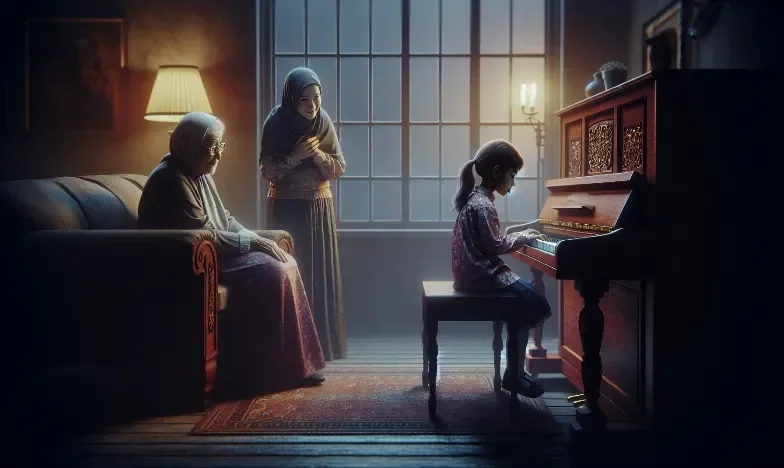“Kaylee Can’t See That Her Daughter Hates Piano Lessons: I’m the Only One Who Notices”
Kaylee Can’t See That Her Daughter Hates Piano Lessons: I’m the Only One Who Notices
As a grandmother, I have always taken pride in being involved in my grandchildren’s lives. My son Brian and his wife Kaylee have a beautiful daughter named Piper. Piper is a bright, energetic eight-year-old with a love for drawing and playing outside. However, there’s one activity that she dreads: piano lessons.
Kaylee, my daughter-in-law, is a talented pianist. She has always dreamed of passing on her love for music to her children. When Piper turned six, Kaylee enrolled her in piano lessons, hoping to ignite a similar passion in her daughter. Unfortunately, it quickly became apparent that Piper did not share her mother’s enthusiasm.
From the very beginning, Piper struggled with the piano. She found it difficult to read music and often became frustrated during practice sessions. Despite her best efforts, she couldn’t seem to grasp the basics. I could see the disappointment in her eyes every time she sat down at the piano bench.
Kaylee, however, was determined to make Piper succeed. She believed that with enough practice and perseverance, Piper would eventually develop a love for the instrument. Kaylee ignored the signs of Piper’s disinterest and continued to push her harder.
I remember one particular afternoon when I was visiting their home. Piper had just come home from school, and Kaylee insisted that she practice the piano before doing anything else. Piper reluctantly sat down at the piano and began to play. Her fingers stumbled over the keys, and she made several mistakes. Tears welled up in her eyes as she struggled to get through the piece.
“Mom, I don’t want to do this anymore,” Piper said, her voice trembling.
“Nonsense,” Kaylee replied firmly. “You just need more practice. You’ll get better with time.”
I couldn’t stay silent any longer. “Kaylee, maybe Piper needs a break,” I suggested gently. “She seems really unhappy.”
Kaylee shot me a frustrated look. “She just needs to push through it, Mom. She’ll thank me later.”
But I knew better. I could see that Piper’s heart wasn’t in it. She wasn’t just struggling with the piano; she was miserable. I tried to talk to Brian about it, but he sided with Kaylee, believing that their daughter needed discipline and perseverance.
Weeks turned into months, and Piper’s resentment towards the piano grew stronger. She began to dread her lessons and would often find excuses to avoid practicing. Her once cheerful demeanor had been replaced by a constant sense of anxiety and frustration.
One evening, I received a tearful phone call from Piper. “Grandma, I hate the piano,” she sobbed. “I don’t want to do it anymore.”
My heart broke for her. “I know, sweetheart,” I said softly. “I’ll talk to your mom again.”
I tried once more to reason with Kaylee, but she remained steadfast in her belief that Piper needed to continue with her lessons. She refused to see the toll it was taking on her daughter.
Eventually, Piper’s grades began to slip, and she became withdrawn and moody. The joy she once found in drawing and playing outside had vanished. It was clear that the pressure of piano lessons was affecting every aspect of her life.
Despite my best efforts, I couldn’t convince Kaylee to let Piper quit. The situation reached a breaking point when Piper had a meltdown during a recital. She froze on stage, unable to play a single note. The audience watched in uncomfortable silence as tears streamed down her face.
After that humiliating experience, Kaylee finally agreed to let Piper take a break from piano lessons. But the damage had already been done. Piper’s confidence was shattered, and it took months for her to regain her sense of self-worth.
To this day, Kaylee still believes that she was doing what was best for her daughter. But I know the truth: sometimes, pushing too hard can do more harm than good.
